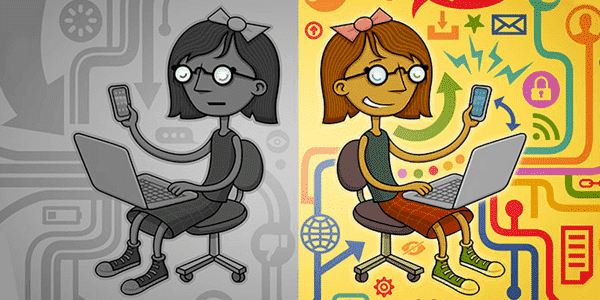Simplifying Net Neutrality

I’m annoyed that I don’t have a perfectly clean opinion about net neutrality.
It’s not that I don’t have a strong opinion—it’s that I feel like I could be missing some major counterpoint.
To me it’s matter of ideal vs. non-ideal worlds, where in an ideal world net neutrality would be a bad thing because it limits the freedom of companies to behave the way they want to. In that reality, a company could easily encourage various services that it has affiliates with, and could throttle or block access to their competitors.
But in that ideal world it wouldn’t matter, because the consumer could simply go to a competing internet provider that either has affiliations they like better, or no preferences whatsoever.
That makes sense to me as someone who understands how a free market works, and understands that businesses should be free to annoy their own customers if they want to. It’s their business and it’s up to them what they do with it.
The problem seems to be that we don’t live in that world.
Instead, we in the U.S. don’t have much choice when it comes to internet providers. The big companies have largely consolidated and pushed out the smaller offerings. Some very large number of consumers have only one (and maybe two) options to pick from. And that changes the calculus significantly.

Because then, instead of it being a smartphone camera app that you can just swap in and out based on having 100 options competing on features, we instead have more of a utility situation. That is to say, internet providers in the U.S. are functioning more like a utility for a critical service—namely internet.
So it’s more like food, or heat, or drinking water coming into your house, where you don’t have the option to switch providers. And if you’re receiving food shipments from your provider, and they only allow you certain foods based on relationships that provider has with various companies, that would be a problem.
Same with internet. The examples there are numerous: not being able to use your preferred search engine, being forced to use a certain streaming service, having limited connectivity to a non-preferred option, etc.
I’m not an expert on the subject, so I’d love to hear from anyone who can show me where I’m missing something in the discussion.
The entire issue seems to reduce to whether internet service providers are smartphone camera apps or power utilities.
If internet providers are smartphone camera apps, then Net Neutrality is a kludge of a regulation that harms innovation and freedom. But if internet is a critical service, while consumers have little choice in what provider they use, then Net Neutrality is an absolute necessity.
It sure feels to me like the reality—at least right now—is the latter.